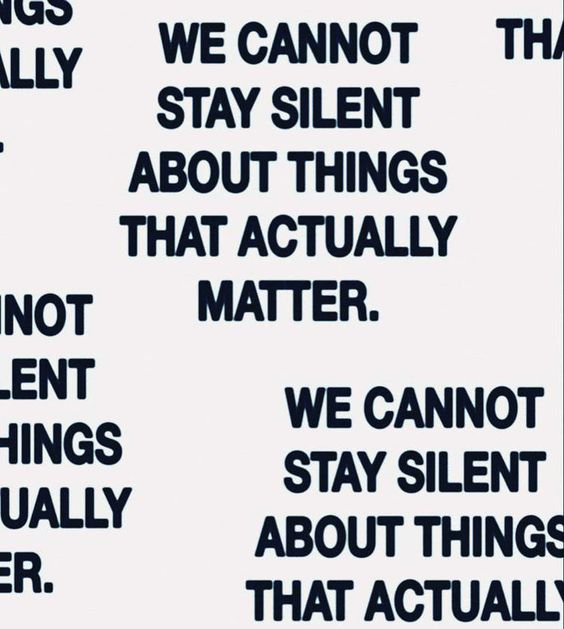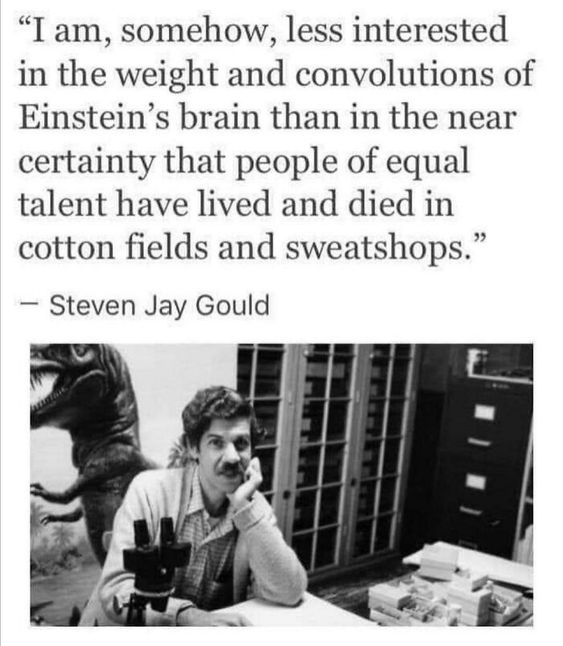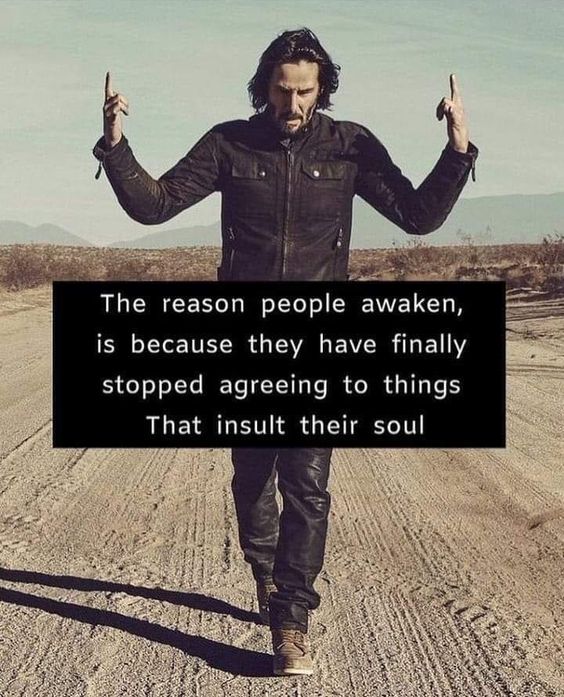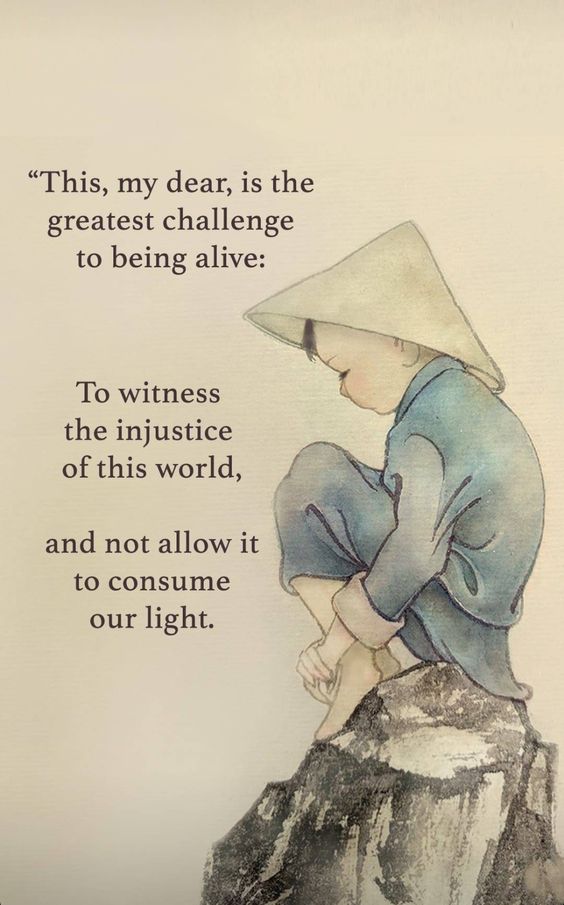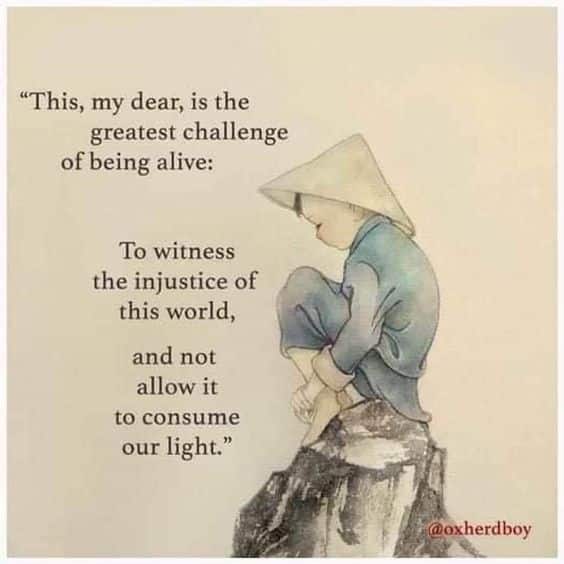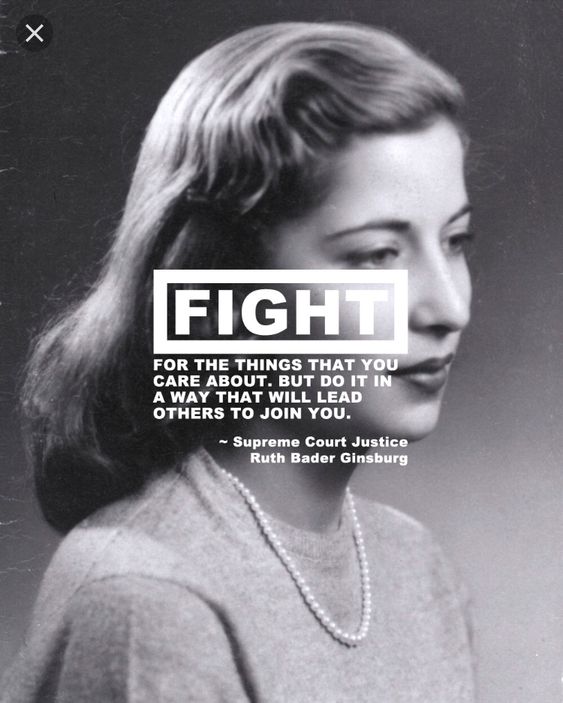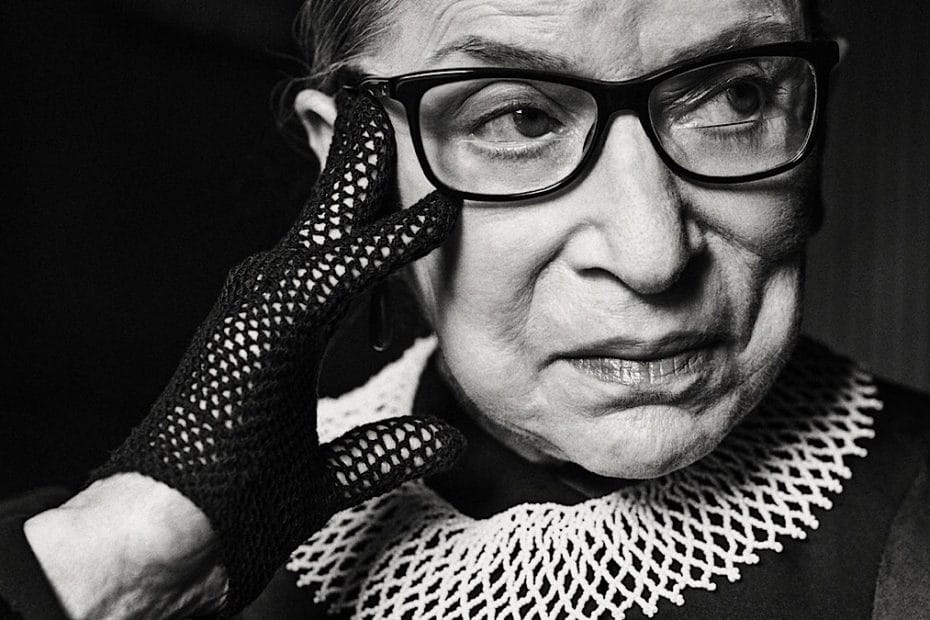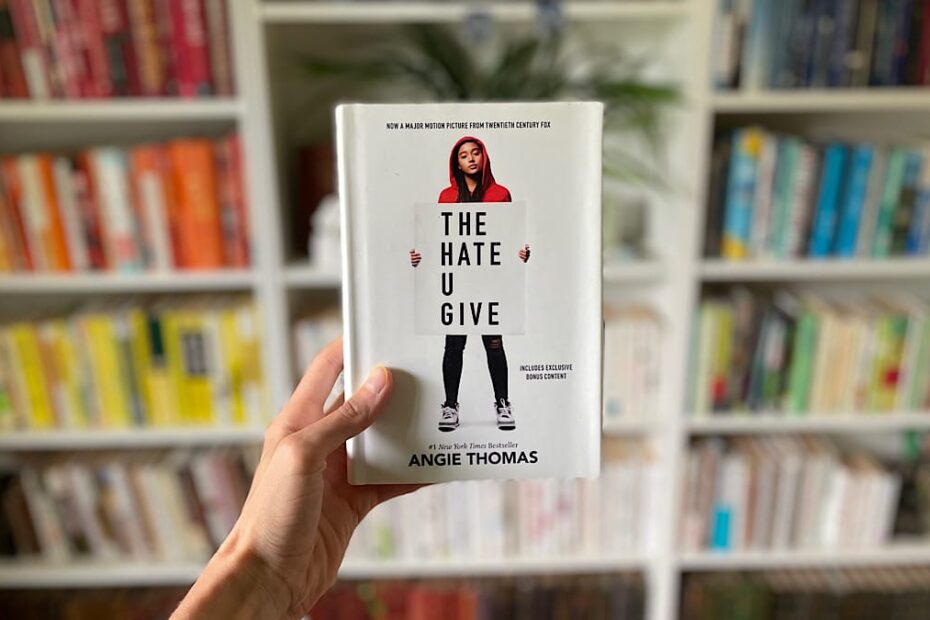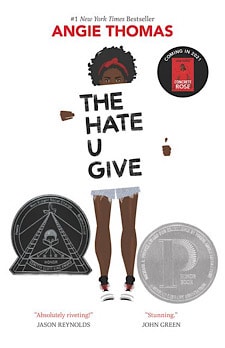“Young people do not assimilate the values of their group by learning words (truth, justice, etc.) and their definitions. They learn attitudes, habits and ways of judging. They learn these in intensely personal transactions with their immediate family or associates. They learn them in the routines and crises of living, but they also learn them through songs, stories, drama, and games. They do not learn ethical principles; they emulate ethical (or unethical) people. They do not analyze or list the attributes they wish to develop; they identify with people who seem to them to have these attributes. That is why young people need models, both in their imaginative life and in their environment, models of what—at their best—they can be.”
John W. Gardner, Self-Renewal (Page 124)
Justice Quotes
“The world is not necessarily just. Being good often does not pay off and there is no compensation for misfortune. You have a responsibility to do your best nonetheless.”
Sheldon B. Kopp, If You Meet Buddha On The Road, Kill Him! (Page 223)
“Our circumstances can be unfair, unjust, unexpected. Yet? This doesn’t absolve us of needing to figure out how to navigate them, make good use of them. Seneca could not change the fact of his exile…but he could transform it. The same is true for us. Whatever life hands us or a tyrant hands down for us, we have to make it right. We have to create justice and progress and good from it. It’s unfair, but it is fate. We can turn this misfortune into a better future. It is the only way forward.”
Ryan Holiday, Daily Stoic Blog
“It is healthy to be angry, and anger can also show us important aspects of who we are and what we care about. For example, anger shows us where our boundaries are. Anger also helps us identify what we find to be unjust.”
Brianna Wiest, The Mountain Is You (Page 73)
“[Real virtue] is its own reward. Virtue is the one good that reveals itself to be more than we expect and something that one cannot have in degrees. We simply have it or we don’t. And that is why virtue—made up as it is of justice, honesty, discipline, and courage—is the only thing worth striving for.”
Ryan Holiday, The Daily Stoic (Page 224)
“Music is one of the most potent forms of protest, the gateway to connection. Seldom has there been a more important time to raise consciousness and shift conversations by picking up a mic. A song, at its core, is a testimony. It’s how we tell our stories, both individually and collectively. It’s how we forget our troubles for a time, and how we remember who we are emotionally. It’s how we rally and how we heal. A song, like no other art form, has the ability to curl up inside of our spirits and never move out. I may have become fluent in the language of social justice, but music will always be my mother tongue. My native language. My way of reaching a world that can never have too many songs in it.”
Alicia Keys, More Myself (Page 220)
24 Potent Ruth Bader Ginsburg Quotes on Equality, Relationships, and Living Up To One’s Potential
Excerpt: 24 potent and insightful Ruth Bader Ginsburg quotes that will help you remember and carry on the legacy of “The Notorious RBG.”
Read More »24 Potent Ruth Bader Ginsburg Quotes on Equality, Relationships, and Living Up To One’s Potential
On Juneteenth, Opal Lee, and Breathing Oxygen Into A Movement For Change
“The people of Texas are informed that, in accordance with a proclamation from the Executive of the United States, all slaves are free. This involves an absolute equality of personal rights and rights of property between former masters and slaves, and the connection heretofore existing between them becomes that between employer and hired labor. The freedmen are advised to remain quietly at their present homes and work for wages. They are informed that they will not be allowed to collect at military posts and that they will not be supported in idleness either there or elsewhere.”
General Orders, Number 3; Headquarters District of Texas, Galveston, June 19, 1865
Beyond the Quote (169/365)
When Maj. Gen. Gordon Granger issued the above order, he had no idea that, in establishing the Union Army’s authority over the people of Texas, he was also establishing the basis for a holiday, “Juneteenth” (“June” plus “nineteenth”), today the most popular annual celebration of emancipation from slavery in the United States.
Read More »On Juneteenth, Opal Lee, and Breathing Oxygen Into A Movement For Change11 Must Read Angie Thomas Quotes from The Hate U Give
Excerpt: These 11 Angie Thomas quotes from The Hate U Give are incredibly relevant and simply must be read as we continue to fight for racial equality.
Read More »11 Must Read Angie Thomas Quotes from The Hate U Give
The Hate U Give [Book]
Book Overview: Sixteen-year-old Starr Carter moves between two worlds: the poor neighborhood where she lives and the fancy suburban prep school she attends. The uneasy balance between these worlds is shattered when Starr witnesses the fatal shooting of her childhood best friend Khalil at the hands of a police officer. Khalil was unarmed. Soon afterward, his death is a national headline. Some are calling him a thug, maybe even a drug dealer and a gangbanger. Protesters are taking to the streets in Khalil’s name. Some cops and the local drug lord try to intimidate Starr and her family. What everyone wants to know is: what really went down that night? And the only person alive who can answer that is Starr.
Buy from Amazon! Listen on Audible!
Not enough time to read entire books? Check out Blinkist and get the key insights from popular nonfiction books in a fraction of the time. ‘Busy’ isn’t an excuse.
Post(s) Inspired by this Book:
“People like us in situations like this become hashtags, but they rarely get justice. I think we all wait for that one time though, that one time when it ends right.”
Angie Thomas, The Hate U Give
“I’ve seen it happen over and over again: a black person gets killed just for being black, and all hell breaks loose. I’ve Tweeted RIP hashtags, reblogged pictures on Tumblr, and signed every petition out there. I always said that if I saw it happen to somebody, I would have the loudest voice, making sure the world knew what went down. Now I am that person, and I’m too afraid to speak.”
Angie Thomas, The Hate U Give
“I think it’ll change one day. How? I don’t know. When? I definitely don’t know. Why? Because there will always be someone ready to fight. Maybe it’s my turn. People realizing and shouting and marching and demanding. They’re not forgetting. I think that’s the most important part.”
Angie Thomas, The Hate U Give (Page 444)
“Once upon a time there was a hazel-eyed boy with dimples. I called him Khalil. The world called him a thug. He lived, but not nearly long enough, and for the rest of my life I’ll remember how he died. Fairy tale? No. But I’m not giving up on a better ending. It would be easy to quit if it was just about me, Khalil, that night, and that cop. It’s about way more than that though. It’s about Seven. Sekani. Kenya. DeVante. It’s also about Oscar. Aiyana. Trayvon. Rekia. Michael. Eric. Tamir. John. Ezell. Sandra. Freddie. Alton. Philando. It’s even about that little boy in 1955 who nobody recognized at first—Emmett. The messed up part? There are so many more.”
Angie Thomas, The Hate U Give (Page 442)
